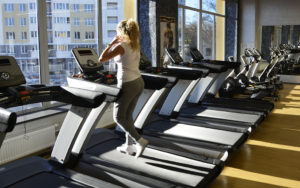Last night while surfing the web another great review study popped up on a feed that stated the following, “Older, fitter adults experience greater brain activity while learning” and I couldn’t help but click on this article. As the oldest of the associates here at the office I pride myself on working out no less than three times weekly and every once in a blue moon I make it for a full seven days straight of high levels of activity. The weather almost always heavily plays into my workout schedules meaning that it is always easier to get a run in when it’s the summer time. Getting back to this article, I truly liked a few of the details. The source is very strong and for the most part things that come from Boston University are usually well grounded. You can read some of the excerpts below but it seems that a fairly strong correlation was made that staying active and healthy helped keep brain activity and memory in better shape when tested on both young and old! Good News!
Older, fitter adults experience greater brain activity while learning
Date:
January 13, 2017
Source:
Boston University Medical Center
Summary:
Older adults who experience good cardiac fitness may be also keeping their brains in good shape as well. In what is believed to be the first study of its kind, older adults who scored high on cardiorespiratory fitness (CRF) tests performed better on memory tasks than those who had low CRF. Further, the more fit older adults were, the more active their brain was during learning.
Healthy young (18-31 years) and older adults (55-74 years) with a wide range of fitness levels walked and jogged on a treadmill while researchers assessed their cardiorespiratory fitness by measuring the ratio of inhaled and exhaled oxygen and carbon dioxide. These participants also underwent MRI scans which collected images of their brain while they learned and remembered names that were associated with pictures of unfamiliar faces.
The researchers found that older adults, when compared to younger adults, had more difficulty learning and remembering the correct name that was associated with each face. Age differences in brain activation were observed during the learning of the face-name pairs, with older adults showing decreased brain activation in some regions and increased brain activation in others. However, the degree to which older adults demonstrated these age-related changes in memory performance and brain activity largely depended on their fitness level. In particular, high fit older adults showed better memory performance and increased brain activity patterns compared to their low fit peers. The increased brain activation in the high fit older adults was observed in brain regions that show typical age-related decline, suggesting fitness may contribute to brain maintenance. Higher fit older adults also had greater activation than young adults in some brain regions, suggesting that fitness may also serve a compensatory role in age-related memory and brain decline.
LINK:
https://www.sciencedaily.com/releases/2017/01/170113155426.htm

